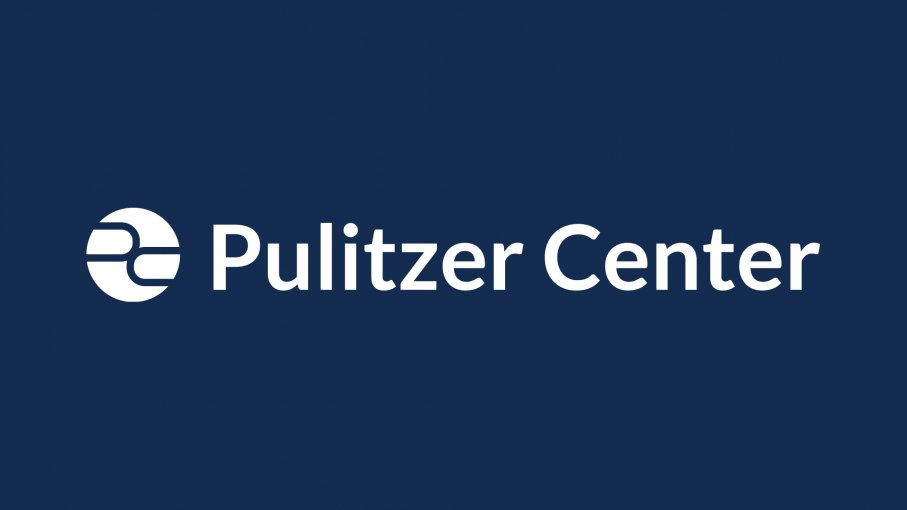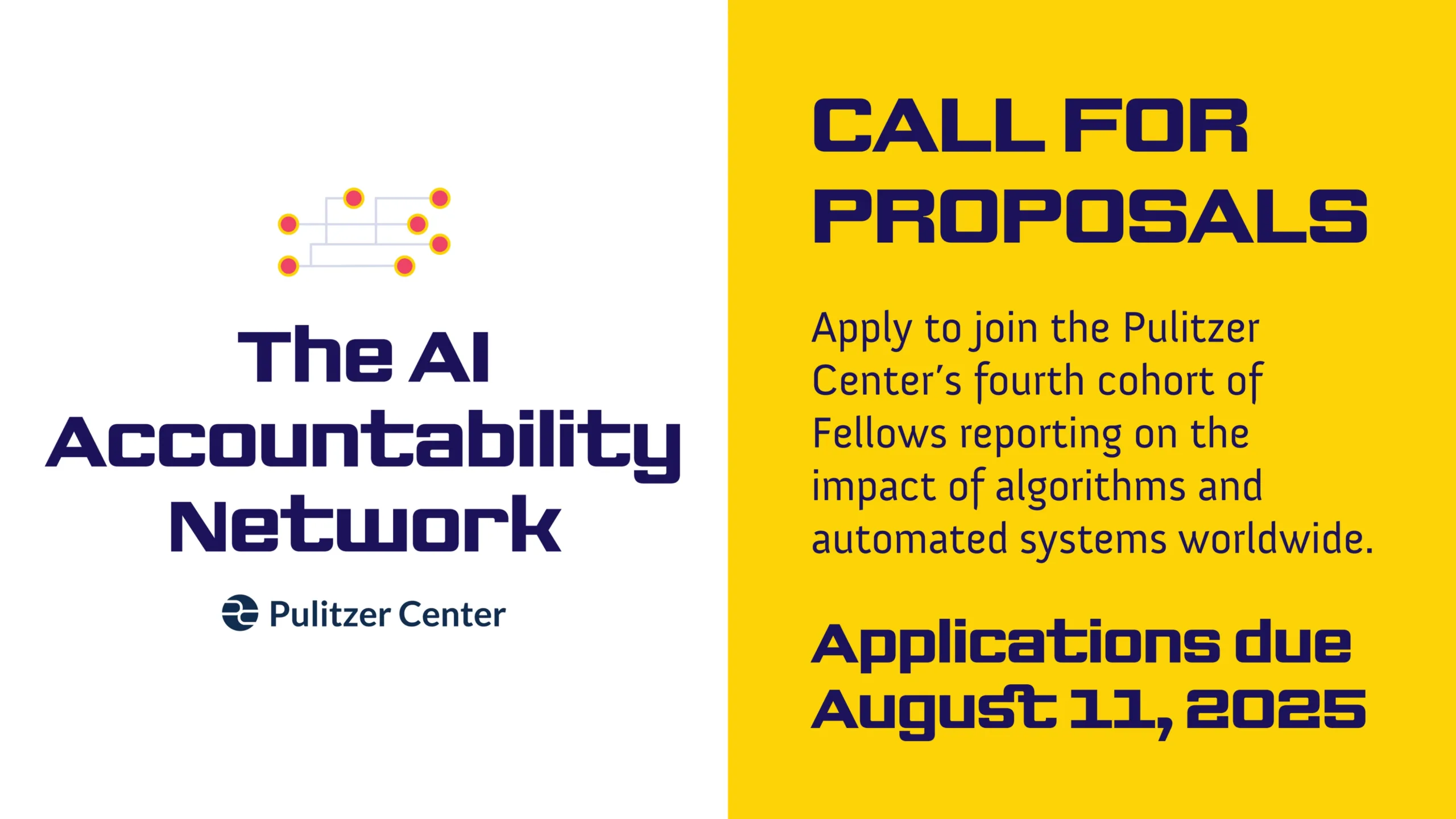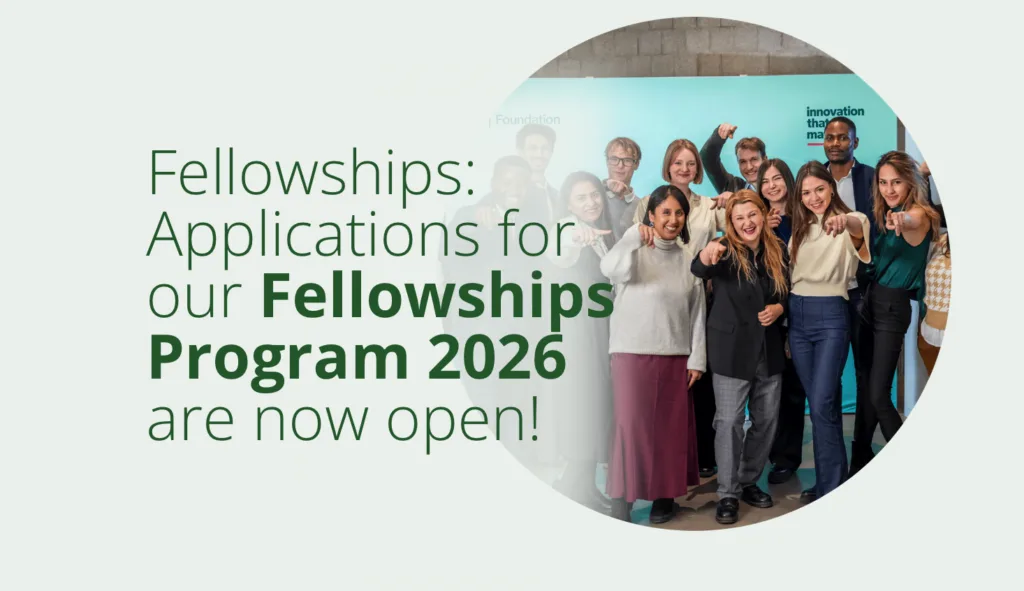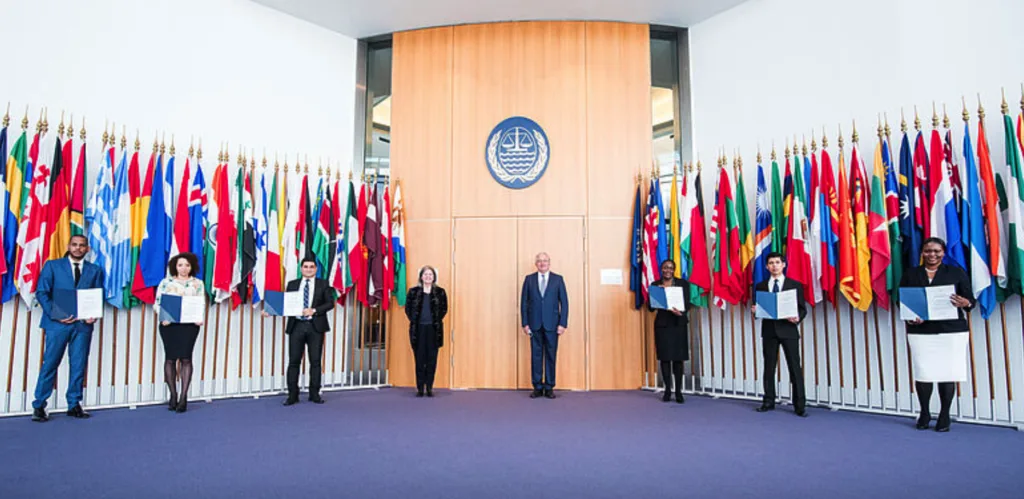In a bold and revolutionary move, the Pulitzer Center has launched an open call for its AI Accountability Fellowships 2025–2026—a time-sensitive, fully funded, and global opportunity for journalists who are ready to expose the untold truths behind artificial intelligence (AI) systems shaping our world.
This highly competitive, 10-month fellowship offers up to $20,000 in funding to selected journalists to investigate how AI is impacting critical areas such as policing, education, healthcare, welfare distribution, and more. It aims to empower journalists with the tools, training, and community support to produce transformational journalism that holds powerful institutions accountable for the design and deployment of AI technologies.
📌 Read More
What makes this fellowship stand out? It offers no-cost, high-impact support—including access to global mentors, legal assistance, data guidance, peer exchanges, and editorial freedom. It’s ideal for investigative reporters looking to dive deep into algorithmic transparency, bias, ethics, and the real-world consequences of AI systems.
Whether you’re based in Nigeria, Brazil, India, the U.S., or anywhere else, if you have a strong project proposal, experience in storytelling, and a desire to uncover the hidden layers of technology and power, this is the opportunity of a lifetime. But hurry—the final deadline is approaching fast, and only a few elite spots are available.
This fellowship is not just about funding—it’s about amplifying voices, shaping global discourse, and transforming how AI is covered in media. Past fellows have published stories that changed laws, exposed algorithmic bias, and pushed for real transparency in systems that affect millions.
If you’re passionate about tech justice, if you want to explore the real reason AI decisions go unchecked, and if you’re ready to hold powerful players accountable—then this is your moment. The Pulitzer Center AI Fellowship could be the platform that takes your journalism to the next level.
Name of Organizer

Requirement/Eligibility
1. Open to journalists worldwide, including freelancers and staff reporters, across all formats: print, digital, audio, video, and photojournalism.
📰 Similar Posts
2. Applicants must have a proven track record in investigative, data-driven, or enterprise journalism.
3. Journalists must pitch a specific project proposal focused on AI accountability in sectors like policing, healthcare, education, or labor.
4. Proposals should include details on methodology, relevance, anticipated challenges, and the potential societal impact.
5. Applicants must commit to monthly 90-minute virtual cohort meetings, collaboration, and sharing of reporting processes and insights.
6. Must demonstrate readiness to handle data analysis, public records requests, and work in interdisciplinary contexts.
7. Required materials include a detailed proposal, three samples of past work (published within the last three years), resume/CV, a project budget, and two letters of support.
8. One letter must confirm editorial support and publication intent from a media outlet or editor.
9. While experience in AI reporting is a plus, it’s not mandatory—but applicants must show dedication to rigorous journalism.
10. Fellows must be available to engage fully throughout the 10-month period and publish their findings during or shortly after the fellowship.
Duration/Stipend
Duration: 10 months (September 2025 to July 2026)
Stipend: Up to $20,000 per fellow, disbursed in stages to cover reporting expenses, such as travel, data access, records requests, and living support
Additional Support
- One-on-one mentorship with experienced journalists and data scientists
- Pro bono legal support for freedom-of-information requests
- Editorial coaching and peer-to-peer exchange through the AI Accountability Network
- Promotion of published stories on Pulitzer Center platforms and through media partners
- Access to workshops, digital security training, and technical tools
Deadline
11th August, 2025





































No responses yet